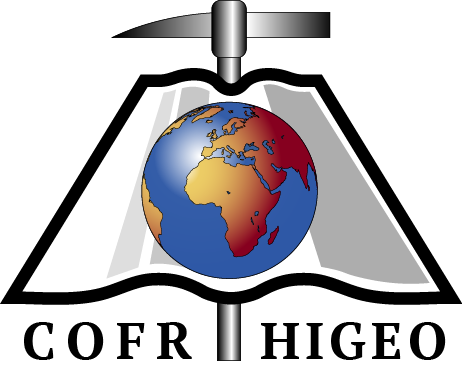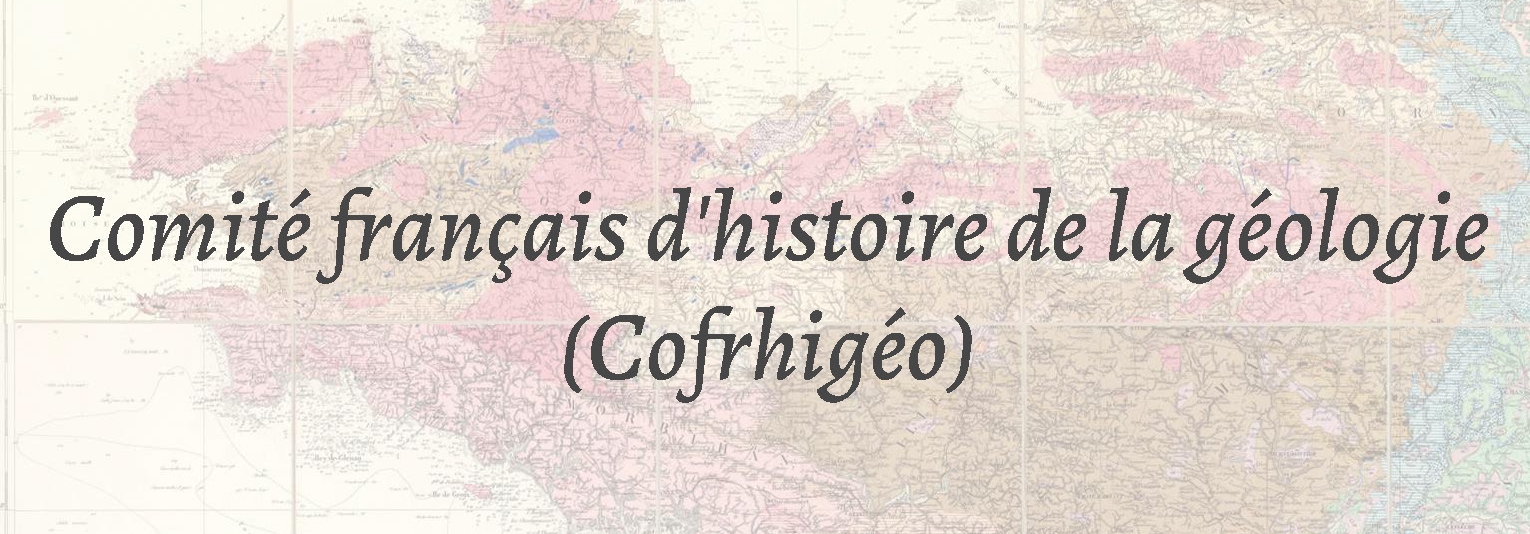The Cofrhigéo Board of Directors is deeply saddened to announce the death of its former Chairman, Gabriel Gohau, in Courbevoie on Thursday 21 December 2023.
Born in Nantes in 1934, he did his preparatory classes at the Lycée Chaptal in Paris in 1954 and then entered the Ecole normale supérieure in Saint-Cloud in 1955. He studied under Léon Lutaud and then Jacques Bourcart, who supervised his fieldwork with Jean Veslin on the tectonics of the Vence region (Alpes-Maritimes). During his years of study in Paris, his fellow students particularly remembered his talent for caricaturing their teachers.
After winning the agrégation in natural sciences in 1959, he was appointed to the Lycée Janson de Sailly in Paris, where he taught until his retirement in 1995. In parallel with his teaching career, Gabriel Gohau began working on the didactics of science, biology and geology in the 1960s. The author of natural science textbooks for secondary schools (such as the Oria course, published by Hatier in 1969), he published a number of works on the didactics of science, particularly in the journal Aster from the 1980s onwards, focusing on various aspects of the teaching of natural sciences, such as rediscovery and epistemological and didactic obstacles.
In the early 1970s, he discovered the thinking of Gaston Bachelard and met Georges Canguilhem, whose seminar he followed. It was through the French school of historical epistemology that he forged his philosophical education: "a school characterised by the study of epistemological obstacles that produce intellectual discontinuities separated by periods of stasis or equilibrium", he explained in his speech accepting the Mary Rabbitt Prize in 2010. In France, in addition to the scientists themselves and professional historians, "philosophers play an important role" in the history of science, he added. At the end of the 1970s, his "master Canguilhem", as he liked to call him, directed him to François Dagognet to supervise the state thesis that he then embarked on and which he defended in 1982. His thesis was on "Ancient ideas on mountain formation. Prehistory of tectonics".
But the sciences in which Gabriel Gohau was interested also covered the various fields of biology, on which he published several articles and books, including "Biology and biologists".
The second half of the 1970s was also the period when he became a founder member of the Comité français d'histoire de la géologie (Cofrhigéo), set up in 1976 by the geologist François Ellenberger along with a number of other leading geologists. He succeeded him as president in 1996, a position he held until 2016, following the death of Jean Gaudant, who had remained secretary general from the outset.
Gabriel Gohau has published numerous articles on the history of geology, notably in Travaux du Cofrhigéo, Revue d'Histoire des Sciences and Les Cahiers François Viète. He is the author of numerous books and book chapters, some of which have been published several times and translated into English: Les fossiles: naissance et formation d'une idée scientifique (1966, 2010); Buffon ... Des époques de la nature (1971, 1998); Biologie et biologistes (1978); Idées anciennes sur la formation des chaînes de montagnes (1983); Histoire de la géologie (1987); L'Enseignement des sciences et la formation du jugement (1987); Les sciences de la terre aux XVIIe et XVIIIe siècles: naissance de la géologie (1990); Une histoire de la géologie (1990); A history of geology (1991); Histoire des sciences de la vie, with Pascal Duris (1997, 2011); Naissance de la géologie historique: la Terre "des théories" à l'histoire (2003); Jules Verne: De la science à l'imaginaire, with Philippe de La Cotardière, Jean-Paul Dekiss, Michel Crozon and Alexandre Tarrieu (2005), which won the Roberval prize. Lamarck, philosophe de la nature, with Pietro Corsi, Jean Gayon and Stéphane Tirard (2006, 2015); Histoire de la tectonique: des spéculations sur les montagnes à la tectonique des plaques (2010)...
The Société Géologique de France awarded him the Eugène Wegmann Prize "for work relating to the history of geology" in 1994. This prize, founded in 1982, was first awarded to F. Ellenberger in 1984. In 2010, he also received the Rabbitt Prize, the history of geology prize awarded by the Geological Society of America.
Finally, this brief presentation would not be complete without mentioning his commitment to rationalism, within the Union Rationaliste, whose board he joined in 1965. He chaired the Paris section and, with a number of other UR members, created Editions rationalistes and the journal Raison présente. The Cahiers rationalistes and Raison présente were also, of course, vehicles for his reflections on the history of science and education. The Union Rationaliste awarded him its prize in 2012.
A ceremony followed by cremation will take place on Thursday 4 January 2023 at 2pm at the Nanterre Crematorium.

